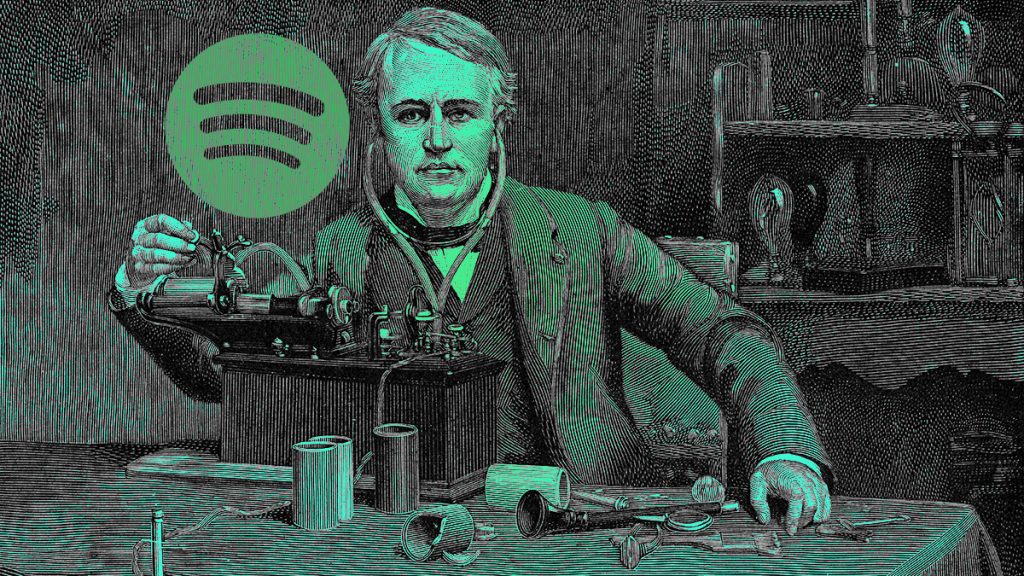
The history of the music industry is filled with technological milestones, from phonographs to streaming services. Each innovation has impacted how people consume and experience music.
- The late 1800s and early 1900s saw the rise of phonographs and sheet music, which sparked a demand for at-home music and led to the creation of music stars.
- Streaming Services surpass physical music sales as the primary revenue source for the industry.
As I’m writing this, I’m listening to The Hanging Tree by Adriana Figueroa. I cannot explain it but I’m a sucker for a good song with clever lyrics that tells a story, especially a morbid one. Music is a story, regardless of the good, bad, or ugly. Throughout history, we, creatures with such complex emotions, have sought to benefit from technology for our favorite creative outlet: Music. These technological advancements went down in the history of the music industry. There are even talks of decentralized music streaming services.
Phonographs and Sheet Music
Popular in the late 1800s and early 1900s, phonographs allowed people to record and playback music for the first time. This breakthrough sparked a demand for at-home music. As a result, the sheet music industry rose in popularity as people started playing the pieces on their own instruments.
Radio and Records
As technology evolved, we made sure to figure out how to use it to share our art. During the early to mid-1900s, radio broadcasts allowed for music dissemination. Many musicians then gained popularity through regular airplay. Stations also created radio programs featuring live performances and helped to establish music stars. The dominoes kept falling as records allowed music’s mass production and distribution. But this time around, it was something more corporate: record labels producing and marketing music to the public.
Cassette Tapes and CDs
The late 20th century introduced cassettes and CDs. The former allowed for the portable playback of music. As a result, people would create their own compilation of favorite songs, mixtapes. When CDs were introduced, however, they provided superior sound quality and durability compared to cassettes. People then began collecting CDs. These technological innovations revolutionized the way people listened to and consumed music.
Digital Music and MP3s
These innovations during the late 1990s and early 2000s a pivotal moment in the history of the music industry. MP3s allowed the download and online sharing of music, creating a new distribution avenue. As a result, we witnessed the rise of online music stores like iTunes where people purchased and downloaded individual songs or albums directly to their devices. This rise provided a new level of convenience and accessibility for consumers.
Streaming Services
This history has culminated in streaming services, like Spotify and Apple Music. They allow people to access a vast library of music for a monthly subscription fee. These services provide a convenient way for people to listen to music, as they can stream their favorite songs on demand from any device with an internet connection. To no one’s surprise, they have surpassed physical music sales as the primary revenue source for the music industry. Bonus point: They use algorithms and personalized recommendations to suggest new music based on a user’s listening habits. But they do introduce more loops to jump through, mainly complex licensing agreements and revenue-sharing models.
Final Thoughts
The best thing about this walk down the history of the music industry is seeing how despite dire circumstances, or perhaps due to these circumstances, music made its way into this world to reflect the collective consciousness. Have you heard Strange Fruit by Billie Holiday? This powerful and haunting song was written in the 1930s. The song describes the lynching of Black people in the American South and the violence and racism that pervaded the era.
Inside Telecom provides you with an extensive list of content covering all aspects of the tech industry. Keep an eye on our Tech sections to stay informed and up-to-date with our daily articles.